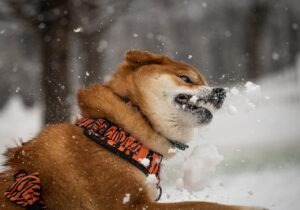If you recently suffered an injury in a dog bite incident and face financial uncertainty, you likely have questions about liability and how it affects your ability to seek compensation. Thankfully, personal injury law supports victims in these cases, providing a legal way to access the financial help they need. In addition, liability in a dog bite accident is typically straightforward, and an attorney can help you understand who is liable in your case and what damages are recoverable.
What Does Dog Bite Law Say About Liability?
States mandate the statutes that govern liability in dog bite cases, but they typically adhere to the “one bite” rule or the legal concept of strict liability. The “one bite” rule is less common, and put simply, it allows the dog to get one bite in before holding the dog owner responsible. However, more states abide by strict liability, which holds dog owners accountable for their pet’s actions with very few exceptions. Essentially, it does not matter what the dog owner does to prevent the bite. They are responsible for the outcome. Training, leashing, and keeping the dog in a secure place are not reasons enough to escape strict liability in most cases.
Are There Exceptions to Strict Liability?
The dog’s history is irrelevant in a dog bite case, which means dogs with an aggressive demeanor and dogs with a history of gentility are treated equally under strict liability. However, there are a few exceptions in which the injured person could be responsible for damages incurred. These exceptions include:
- The injured person harassed or hurt the dog, provoking the animal to attack.
- The attack occurred on private property, and the injured person was not present legally, meaning they trespassed.
- The victim is a veterinarian, and the bite occurred within the scope of their work.
Unless one of these exceptions applies to your case, you can sue the dog owner for compensation. However, if the defendant truthfully argues that you contributed to the accident, it could lessen the compensation or even exempt you from receiving anything.
Comparative Negligence in Dog Bite Claims
Suppose you took your dog on a walk and chose not to put them on a leash. Then, imagine you come across another person walking their dog without a leash, and the dogs start to fight. In that case, if you suffered an injury while trying to separate the two dogs, you may face partial liability claims. Depending on your percentage of responsibility, that could render you ineligible for compensation.
Most states adhere to the comparative negligence rule for personal injury cases involving shared fault. There are two types of comparative negligence, and each state decides which to follow:
- Pure comparative negligence states that the dog bite victim can be nearly entirely responsible and still receive a portion of the final calculation of damages.
- Modified comparative negligence states that the dog bite victim cannot be more than 50% or 51% responsible. Some states set the threshold 1% higher than half.
Only 12 states follow the pure comparative negligence rule. If you live in a modified comparative negligence state and are found partially but less than 50% responsible for the dog bite incident, you can still recover the total damages minus a portion equal to your percentage of fault. For example, if you are 40% at fault, you will still receive 60% of the damages. If you are 52% at fault, you no longer qualify.
How Do You Build Your Case in a Dog Attack Case?
The first step in establishing liability in a dog attack case is to take steps to protect your rights at the scene of the incident. The insurance company will doubtlessly attempt to shift blame to you or someone with you at the time. The best way to combat these claims is with reliable evidence. What you should do in the wake of a dog attack includes:
- Call emergency services. Call 911 and explain what happened to the dispatcher. When first responders arrive, give a clear, detailed statement. A police report is a good source of evidence, as is a 911 call.
- Take photographs. If you are able or someone nearby can help, take pictures of the area and your injuries. Include the dog in the photos, and if the dog escaped a fence or chain, photo those areas as well. You can look for holes under the fence, a broken chain, or a missing collar. Document what you can without placing yourself in harm’s way.
- Collect information. Get the dog owner’s information, including proof of homeowner or renter’s insurance. Talk to eyewitnesses and get their contact information as well.
- See a doctor. If you did not go to the emergency room, you should still have a medical exam to clean up any bites or scratches. You also want a medical record of your injuries.
- Talk to animal control. Typically, the police will alert animal control. If not, the doctor may report the incident. However, you can call to ensure someone checks the dog’s vaccination records.
Speaking with an attorney is advisable as well. Most personal injury attorneys who deal with dog attacks offer free consultations so you can discuss your case’s details and determine the best legal option for recovering your losses.
Collecting Evidence During Recovery
Collecting evidence is an ongoing process. During your recovery, you can keep documentation of your damages. Reach out to people in the neighborhood where the accident occurred to see if anyone had previous negative experiences with the dog. If you walk away with bloodied and torn clothing, keep those clothes preserved, meaning do not wash or trash them. Write detailed notes about what happened before, during, and after the accident. Additionally, you should keep every record of medical treatments:
- Physician’s notes
- Test results
- Copies of the emergency room chart
- Hospital release papers
- Record of therapy visits for the emotional trauma
You can document your thoughts and feelings in a journal to remember how the accident affected your life. Then, be sure to address all attack-related issues with your healthcare team.
How Can a Dog Bite Attorney Help With Your Case?
Taking the first step toward compensation following a dog bite accident can be intimidating, especially if you have questions about liability and other details of your case. A dog bite accident attorney specializes in personal injury law. They understand the process of collecting evidence, proving liability, and calculating your damages correctly to ensure you receive a fair settlement as quickly as possible.
At Jason Stone Injury Lawyers, our experienced personal injury attorneys work with victims of dog bite attacks suffering from puncture wounds, head and neck injuries, and extremity injuries, as well as emotional trauma. With a simple consultation, we can help you determine if the dog owner is liable for the financial and psychological damage caused by your injuries. To help alleviate some of the financial burdens, we charge no upfront fees for our services. Part of our Stone Cold Guarantee to clients is that we do not get paid unless you receive a settlement or award. Your financial status does not dictate our level of commitment to your case, and we believe you are entitled to excellent legal presentation. Contact Jason Stone Injury Lawyers today for your free case evaluation. There’s No Obligation, Just Information.
Not Trusting What You’re Being Told?
Better Phone Stone
800-577-5188
 START MY NO OBLIGATION CONSULTATION
START MY NO OBLIGATION CONSULTATION











